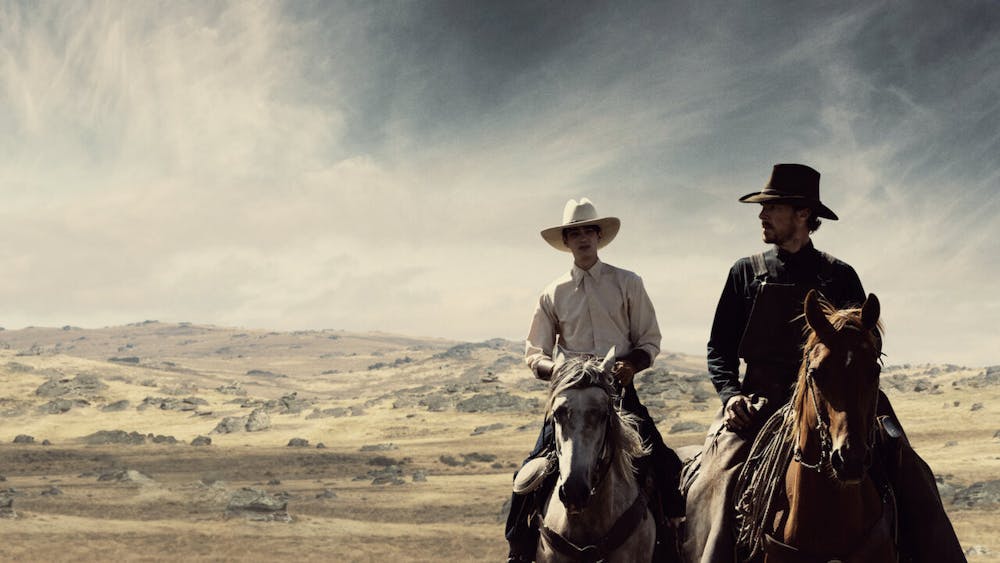Netflix has come close to the coveted Best Picture Oscar win in recent years, with stellar titles “Roma” in 2019, “The Irishman” and “Marriage Story” in 2020 and “Mank” and “The Trial of the Chicago 7” last year. While winning several well-deserved Academy Awards, the streaming service has fallen short of winning the coveted Best Picture title. The award’s importance is exaggerated and drifts further away from mainstream credibility, yet it’s still a huge honor for studios like Netflix who have built a healthy repertoire of must-watch films. This year, Netflix is placing its hopes in Jane Campion’s “The Power of the Dog'' to take the big prize home, and after watching it with Duke Screen/Society, it’s easy to see why it’s a favorite.
“The Power of the Dog” takes place in 1925, on a ranch house in Montana. Phil and George Burbank are polar opposite brothers, where George’s calm demeanor and dapper appearance makes Phil’s uncouth nature all the more visible and threatening. Their relationship feels like boiling water at the brim of a pot, which looks to spill over once George marries a widowed proprietress named Rose. As someone who doesn’t take kindly to new people, this brings out the worst in Phil, and we see cruelty that borders on sociopathy. It’s a reimagined western that combines a slow-burning plot with intense psychodrama rarely done as well as in this film.
Benedict Cumberbatch stars as Phil Burbank, a cattle rancher who uses physical, mental and emotional intimidation to get what he wants and put everyone else down. His scenes are gripping from beginning to end, whether he’s verbally putting strangers down or outplaying Rose on the banjo as she tries to practice for a piano performance. Phil Burbank twists and uses the surrounding characters’ insecurities and vulnerabilities against them, which can be viewed as unprovoked villainy, reactions to unresolved trauma or something in between.
Beyond Cumberbatch's riling performance, Jesse Plemons creates a subtle but determined George Burbank, who attempts to keep his brother at bay while trying to start a new chapter in life. Kirsten Dunst’s Rose is pitied and fragile through large portions of the film, but her character’s deterioration is excellently performed and transcends the distressed damsel trope. Kodi Smit-McPhee, personally, steals the show as the impressionable Peter, Rose’s son and hopeful doctor. Bullied for his effeminacy, Peter initially appears to be a victim of the cattle rancher’s macho man mentality. But through his intelligence, Peter deconstructs Phil Burbank’s coarseness and turns the plot’s trajectory on its head. The characters are psychologically impressive to say the least, where each character keeps their feelings close to their chest but acts out unconsciously. As such, the film encourages the viewer to decode each characters’ intentions and piece together their next move. By the end, we’re given a clear picture of what happened, yet we’re left wondering how each narrative and character strand got us there so succinctly.
This entry comes from a long list of psychological powerhouses by New Zealand director, screenwriter and producer Jane Campion. Projects like “Sweetie” introduced Campion’s talent in crafting unconventional characters and relationships, while the critically claimed “The Piano” cemented Campion as a generational storyteller and trailblazer for women directors. Her return to the cinema with “The Power of the Dog” is gladly welcomed, and it is sure to earn even more awards and recognition as Oscar nominations release this month.
For those who love westerns that aren’t quite westerns, romance that isn’t really romance and dramas that lean toward psychological thrillers without ever looking like it, “The Power of the Dog” is worth watching. I was fortunate enough to catch a screening of the film at the Rubenstein Arts Center’s Film Theater as part of Screen/Society’s January and February film catalog. These screenings are free and open to the public, and it frequently showcases international classics, Hollywood genre works and director retrospectives. I’ve certainly enjoyed the variety and quality that Screen/Society provides, so check out the upcoming screenings and be sure to view “The Power of the Dog” streaming on Netflix.
Get The Chronicle straight to your inbox
Sign up for our weekly newsletter. Cancel at any time.

